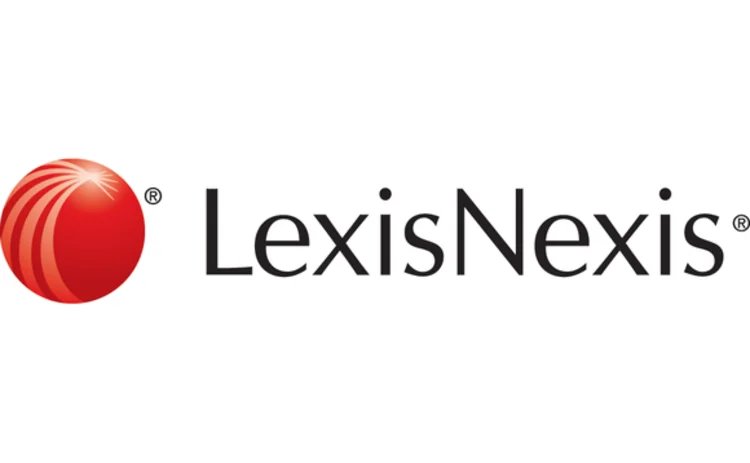
Sponsored feature: LexisNexis

A world of confusion
For the past two decades, FIs have been making it easier for individuals to transfer their assets throughout the globe. Be it for job, tax, wealth planning, marriage or other reasons, the ability to create an account in the Cayman Islands, Luxembourg or Hong Kong has simply been a matter of processing some paperwork. This paperwork clause, however, causes FIs headaches because it bogs down the ability to transfer assets easily. The paperwork typically revolves around verification of the customer’s identity and due diligence behind the reasons for the asset transfer, as well as plans for the assets while at the FI.
This creates a multitude of layers within FIs’ onboarding procedures to speed the process along. Some FIs require physical documents, others no documents; it has all been based on the perception of risk within the FI. Unfortunately for globe-trotting consumers, this disparity in requirements has caused great confusion for all involved.
Setting expectations for customers
The implementation of Fatca will guide FIs globally by providing them with a reference on what verification is required of their customers and the level of due diligence required from them based on their asset transfers. Fatca will, therefore, enable FIs everywhere to create a standardised customer onboarding process that will clearly define risk tolerances and accepted practices for engaging with customers.
The benefits of this standardisation will be telling. Customers, regardless of location, will begin to see standardised expectations on what is required of them when engaging with an FI. As the financial industry collectively sets these expectations, FIs will begin to see cost-saving measures in their customer education, as well as significant savings in their customer due-diligence operations. This is due to customers knowing what to expect and what documentation they need to provide to open an account. FIs should see a drop over time of accounts put on hold due to insufficient documentation from customers or documents that are simply not accepted.
Streamlining returns on investment
The secondary benefit to a collective onboarding process is that FIs should also see a quicker time to deposit and revenue on their end. As mentioned previously, there are significant customer issues in opening up accounts due to deficient documents or other materials, which delay attaining deposits for up to a few weeks. In the future, this percentage of customers will shrink because customers will finally know what to expect when they open their accounts.
This standardisation of customer onboarding will also affect the long-term costs associated with due-diligence and research spends for FIs over time. One of the largest cost centres today is customer due-diligence operations – in fact, this accounts for more than 50% of an FI’s compliance budget. By attaining cleaner data from the beginning, gathering consistent expectations of customer intentions over the long term and having standardised processes in place within the institution, FIs will begin to see significant cost saving over time.
Realising the benefits of third parties
Finally, Fatca will push FIs to increasingly utilise technology and third-party data vendors to help with this process. The utilisation of third parties that are experts in data and case management will enable FIs, enterprise wide, to implement these standard procedures and operate these systems over time with significant cost saving. FIs will also enjoy additional benefits from this standardisation due to the ability to mine and enhance their data more effectively with third-party vendors to better service their customers.
Discovering the value in Fatca
Fatca enables FIs to get out of the compliance business and back into doing what they do best: serving their customers by maximising the value of the customers’ assets. Globally, FIs are only at the beginning of this long journey, but the ones that capitalise on these regulatory efforts and unearth the powerful changes that Fatca can provide will reap the benefits over the long term.
About the author
Micah Willbrand is the director of anti-money laundering (AML) and compliance for LexisNexis’ North American Financial Services Markets, including identity verification, watchlist and due-diligence products. Prior to joining LexisNexis, Micah worked in Europe with Experian as head of authentication services for the UK, and with the GB Group as director of international business development for their business expansion into the US, the European Union (EU) and Asia Pacific (APAC). Micah is a recognised expert in global identity verification, fraud identification and compliance, and has extensive working knowledge and governmental consultative experience with global AML-counter terrorism financing regulations around customer onboarding, identification, monitoring and privacy requirements within the EU and APAC. He resides in the Atlanta, Georgia, area of the US with his wife and children.
The opinions expressed in this article are those of the author and do not necessarily reflect the views of LexisNexis.
View the article in PDF format
Sponsored content
Copyright Infopro Digital Limited. All rights reserved.
As outlined in our terms and conditions, https://www.infopro-digital.com/terms-and-conditions/subscriptions/ (point 2.4), printing is limited to a single copy.
If you would like to purchase additional rights please email info@risk.net
Copyright Infopro Digital Limited. All rights reserved.
You may share this content using our article tools. As outlined in our terms and conditions, https://www.infopro-digital.com/terms-and-conditions/subscriptions/ (clause 2.4), an Authorised User may only make one copy of the materials for their own personal use. You must also comply with the restrictions in clause 2.5.
If you would like to purchase additional rights please email info@risk.net